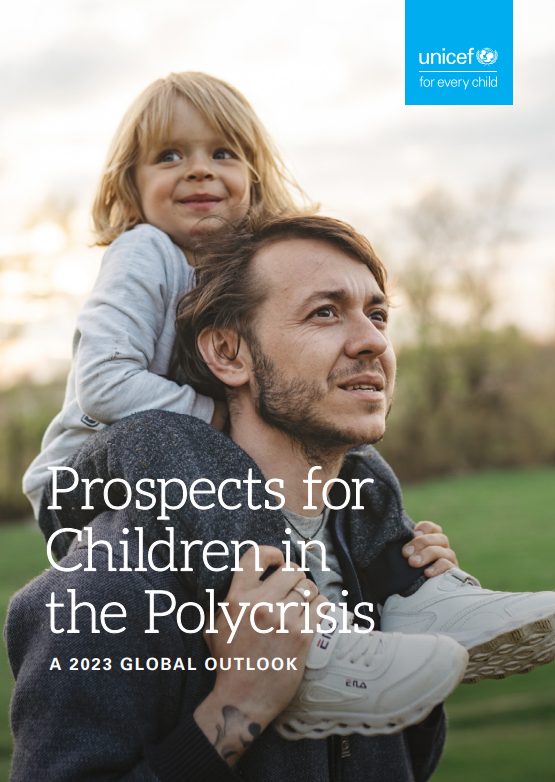The report explores children’s future prospects in a polycrisis, drawing insights from young individuals across over 40 countries. Insights were collected during virtual youth foresight workshops. It forecasts that by 2023, one in four children will live below the poverty line. It highlights challenges like a limited global cereal supply, insufficient education funding, and threats to democratic rights. A “polycrisis” involves multiple interconnected shocks, straining multilateralism and creating opportunities to address children’s concerns. The document urges reviewing and considering eight trends shaping child rights and well-being in the coming year.
1- The pandemic’s harms will continue to be counted.
Despite ongoing pandemic challenges, there’s hope for children due to health architecture reforms and medical breakthroughs. Reforms aim to enhance the global health system’s ability to address pandemic complications. This offers hope for improved health outcomes. Medical breakthroughs, including vaccines, mitigate the pandemic’s impact on children. These advances trigger significant investments and enhancements in global health systems. In essence, positive shifts in health architecture and medical innovations offer hope for brighter future health outcomes for children.
2- Efforts to tame inflation will have unintended negative effects on child poverty and well-being.
Efforts to control inflation may worsen child poverty and well-being. Inflation can make essential child-related expenses unaffordable, impacting lower-income households. Measures like interest rate hikes can burden children and families, affecting financial stability. Policy measures protecting vulnerable families and children are crucial to mitigate these effects.
3- Multiple factors will contribute to continued food and nutrition insecurity
Various factors contribute to food and nutrition insecurity, endangering children’s well-being. Climate change impacts, including extreme weather and shifting agriculture, threaten food security. Calls for climate adaptation and food systems reform aim to prevent food poverty in children. Adaptation counters climate effects on food systems, while reform addresses structural issues for enhanced food security. Combined efforts are essential to prevent food poverty, ensuring consistent access to nutrition for children.
4- The worsening energy crisis may cause immediate harm to children
The energy crisis poses immediate threats, especially to vulnerable families. High energy costs force difficult spending decisions. Yet, the emphasis on energy sustainability offers hope for a greener future. The global shift to green energy enhances security and sustainability, mitigating the crisis. Sustainable energy also creates opportunities for youth employment, contributing to a better future. Despite immediate threats, the shift towards sustainable energy offers optimism for children and the environment.
5- Unmet needs and underinvestment in children warrant reforms of financial flows to developing countries
Reforms in financial flows to developing countries are necessary due to unmet needs and underinvestment in children. Focus on climate finance and debt relief provides promising solutions. Climate finance supports developing countries in addressing climate impacts, which is crucial for children’s well-being. Debt relief eases financial burdens, enabling more resources for children. These efforts protect children’s rights and well-being globally.
6- Threats to democratic rights such as freedom of expression are expected to continue
Democratic rights, including freedom of expression, face ongoing threats. Social movements, led by young individuals and women actively counter these threats. These movements defend and extend civil liberties, shaping the future of democracy. Their resoluteness provides optimism for continuing and enhancing democratic values.
7- Increasing factionalism will put further stress on multilateralism
Growing factionalism challenges multilateralism. Focusing on children’s concerns could bridge divides and foster collaboration among factions. Involving children in shaping the future creates a more inclusive global environment, which is crucial against factionalism.
8- The internet will continue to fragment and become less global, resulting in further disparities for children
The internet, initially a global public good, now fragments, worsening disparities. A push for openness, fairness, and inclusion is vital. Efforts against censorship and surveillance, led by young people, reflect their active role in shaping the internet’s future. This push recognizes the internet’s crucial role in children’s lives, advocating for equal access and opportunities.
Prospects for Children in the Polycrisis: A 2023 Global Outlook
Prospects for Children in the Polycrisis: A 2023 Global Outlook




